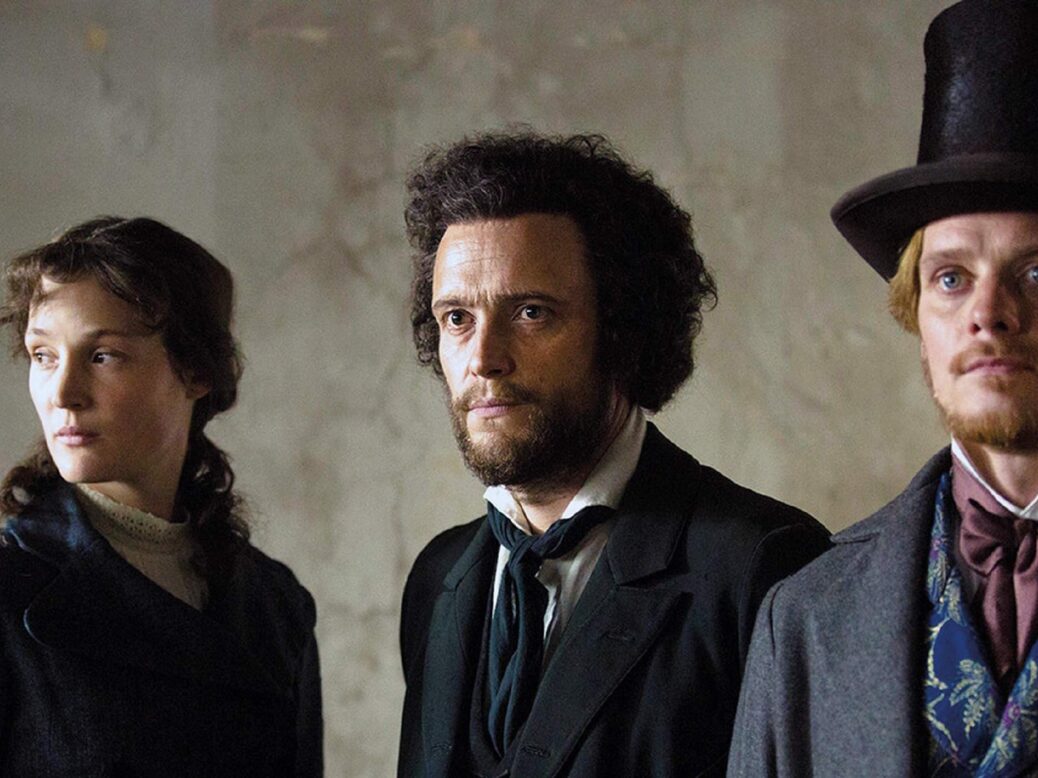
A film based on the relationship between Marx and Engels may not immediately float the proletariat boat. When dialogue includes lines such as “I am sick of you and all your young Hegelians”, some may feel they would be better off with Avengers: Infinity War. But they are wrong. Raoul Peck’s The Young Karl Marx is sparky, brave and totally absorbing. One may conclude this is because Marx’s ideas remain so full of fire and so alive.
Peck is a fascinating director, a one-time minister of culture for Haiti and a film-maker undaunted by thought and its processes, which are so difficult to capture. He made the brilliant I Am Not Your Negro, the 2016 documentary about James Baldwin. That film sizzled every time Baldwin was on screen, his archness, his beautiful mobile face, his utter fearlessness. Peck needs then to make Marx a real presence, and he does so in this drama. It is in many ways a conventional biopic, lifted by its performances, and by its insistence that ideas matter – that they make history, and are made in history.
The movie charts the period up until the writing of The Communist Manifesto. Marx, played with a certain weariness by August Diehl, is just about managing as a journalist. He is arrogant, sometimes insufferable, but whip-smart. Life is tough as he is forced to move around, and can hardly make ends meet. His wife, Jenny (Vicky Krieps), is a Prussian aristocrat who has rejected her class position and is endlessly supportive of her husband while having seven children.
Marx is impatiently writing his polemic, understanding that the industrial revolution has changed everything and that Europe is in turmoil. He meets Engels (Stefan Konarske) in Cologne. Engels is a total bourgeois, his father owns mills in Manchester, but he has rejected it all. He sees Marx’s genius and helps to support him. This is class struggle recast as bromance, but it works because it is largely true to history.
Engels embodied the contradictions that Marx analysed. Moneyed but radical, he liked to live well: “It is absolutely essential that you get out of boring Brussels for once and come to Paris, and I for my part have a great desire to go carousing with you,” he wrote to Marx in 1846. Carousing here means visiting French prostitutes
Engels can hold his drink: Marx can’t and is ground down by poverty. Somehow, though, a great friendship is forged and the film glides through the intellectual underpinnings of what would become the manifesto. Engels, because of his father’s mill, knows the dreadful conditions of the working class. He had a long relationship with an illiterate Irish woman, Mary Burns, who worked in the mill and guided him through the grim streets of Salford. He would take up with her sister when she died.
Marx, meanwhile, decides to take on Pierre-Joseph Proudhon, the great anarchist thinker who had declared all property theft. Proudhon had written The Philosophy of Poverty, and Marx responds with The Poverty of Philosophy. He wants to change the world. This is the point at which Marx breaks from anarchism. Proudhon is embracing a mutualism that Marx rejects.
The film shows how Marx and Engels would come to argue that there could be no mutualism, no compromise between capital and labour, and that class relations can only ever be antagonistic.
This revolutionary passion is, as Peck shows, a product of the time in which they lived. The manifesto reads, still, as writing that had to be written. It is compelling, rhythmic, and goes in and out of fashion. It feels current now because we have gone through another industrial revolution – of technology; and because of its prophesying of globalisation; and most radical of all, because of its understanding that there is no sphere that capital does not inhabit. It is poetic in its vision: “All that is solid melts into air, all that is holy is profaned…” Its ambition is uncontained.
The Young Karl Marx brings to life the furnace in which this thought was forged. Inevitably the partners of these men, Jenny and Mary, seem idealised. They are both radicals but occupy the feminine sphere of waiting on and for their great men. The manifesto talks about the family, and the slavery of the bourgeois wife. Engels is still seen as the godfather of socialist feminism for his understanding of how capital infects family relationships. Marxists remain poor, though, at analysing unpaid labour.
Maybe Peck is showing us the difference between how these women actually live and how they want to live. But that is another revolution. The film ends with a montage that takes us up to the present; it is brimming with energy and unfinished business. For we always live in new times.
The Young Karl Marx (18)
dir: Raoul Peck
This article appears in the 02 May 2018 issue of the New Statesman, What Marx got right



